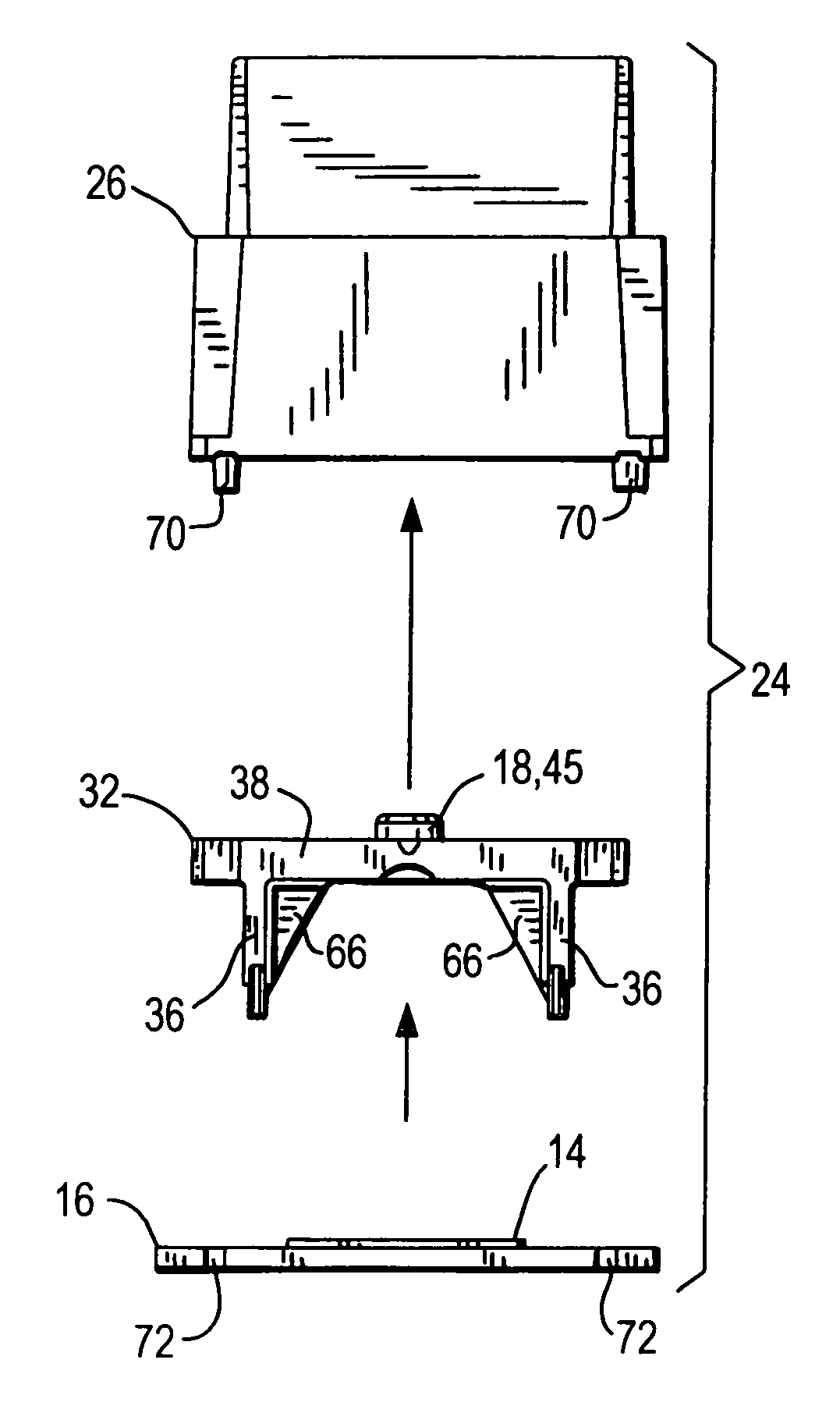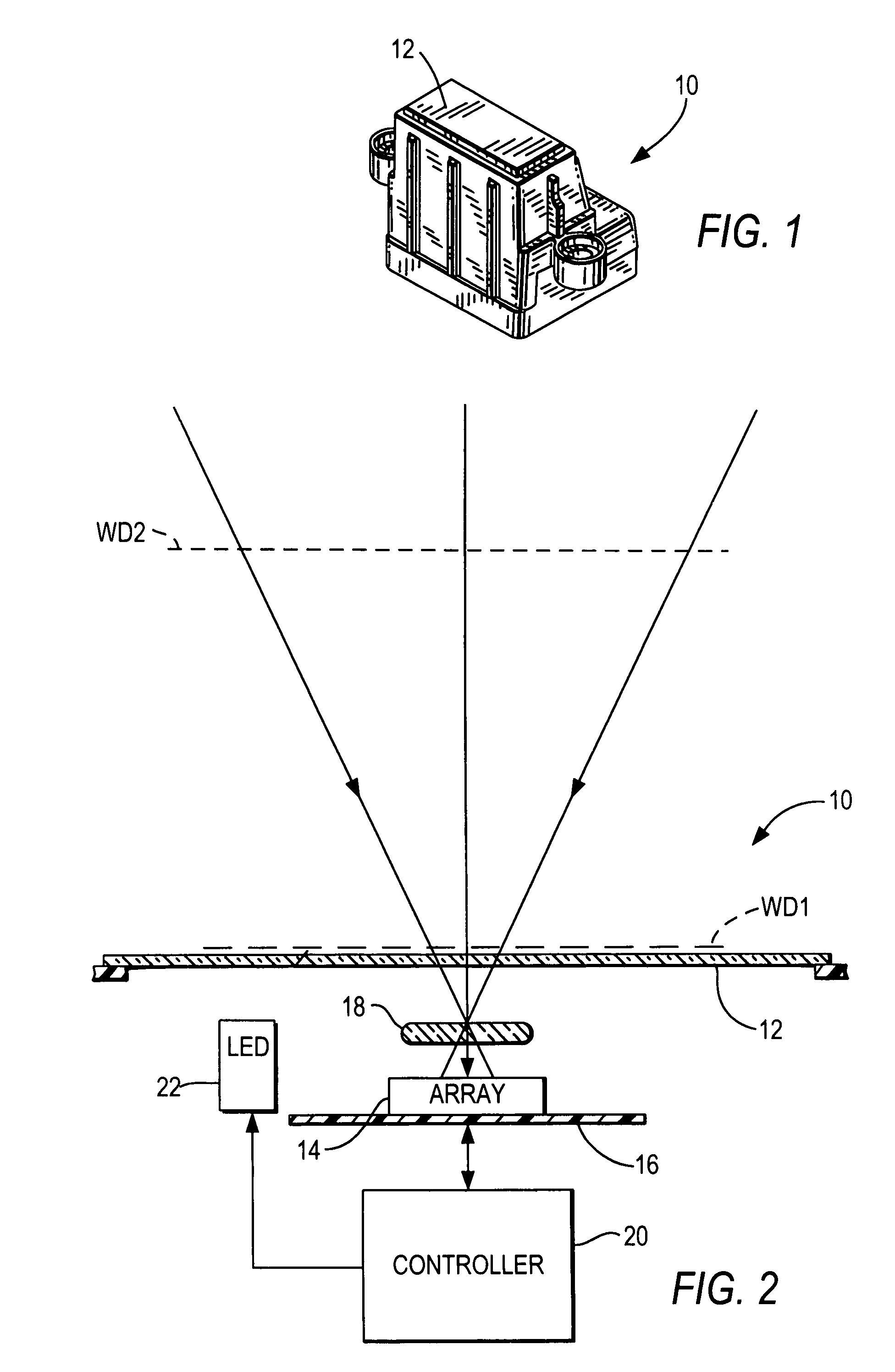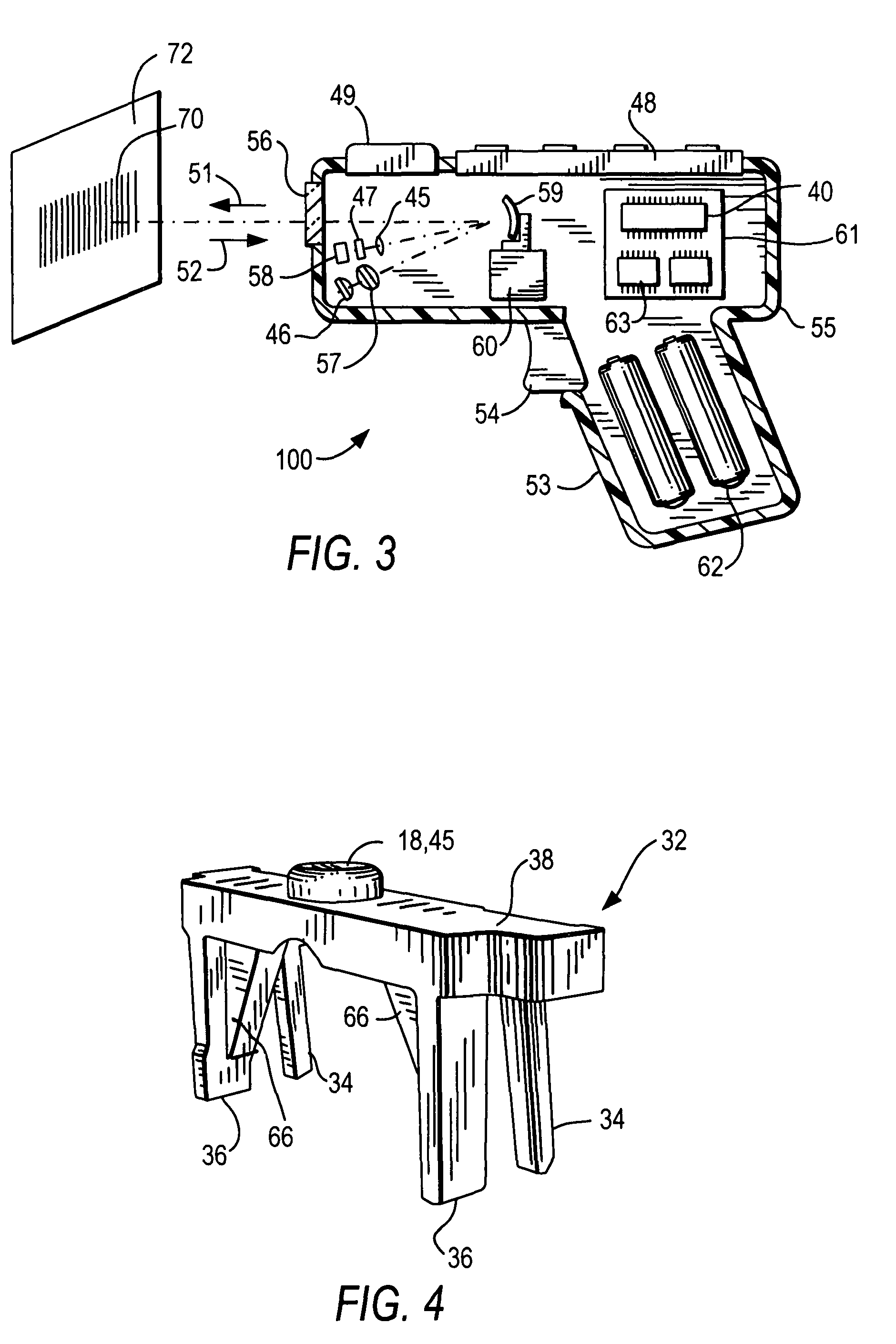Light collection assembly with self-retaining lens in electro-optical reader
a technology of electro-optical reader and assembly, which is applied in the direction of mountings, sensing record carriers, instruments, etc., can solve the problems of large-sized readers, difficult to achieve economically when using adhesives, and large assembly and manufacturing costs of readers, so as to reduce assembly and manufacturing costs, the effect of high degree of accuracy
- Summary
- Abstract
- Description
- Claims
- Application Information
AI Technical Summary
Benefits of technology
Problems solved by technology
Method used
Image
Examples
Embodiment Construction
[0021]Reference numeral 10 in FIG. 1 generally identifies a data capture system or an electro-optical imaging reader for electro-optically reading indicia, such as bar code symbols, by capturing illumination and / or ambient light reflected or scattered from the symbols with an array of image sensors. In use, an operator presents each symbol to be read to a window 12. The reader 10 can be used as a stand-alone device, but has been especially designed herein to be portable, miniature, lightweight and inexpensive so that it can be readily installed as a subsidiary component in an apparatus operative for performing other functions.
[0022]As shown in FIG. 2, the imaging reader 10 includes an imager 14 supported on a printed circuit board 16 and a focusing collection lens 18 in front of the imager. The imager 14 is a solid-state device, for example, a CCD or a CMOS device and preferably has a linear array of addressable image sensors operative for sensing light passing through the window 12...
PUM
 Login to View More
Login to View More Abstract
Description
Claims
Application Information
 Login to View More
Login to View More - R&D
- Intellectual Property
- Life Sciences
- Materials
- Tech Scout
- Unparalleled Data Quality
- Higher Quality Content
- 60% Fewer Hallucinations
Browse by: Latest US Patents, China's latest patents, Technical Efficacy Thesaurus, Application Domain, Technology Topic, Popular Technical Reports.
© 2025 PatSnap. All rights reserved.Legal|Privacy policy|Modern Slavery Act Transparency Statement|Sitemap|About US| Contact US: help@patsnap.com



